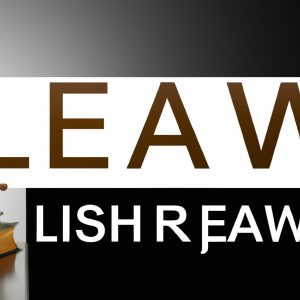Assets to Consider When Planning Your Estate in New York
Estate planning is crucial to securing your financial legacy and ensuring your wishes are carried out after your passing. In New York, estate planning involves careful consideration of various assets to create a comprehensive plan that meets your goals and protects your loved ones. This guide will walk you through the key assets to consider when planning your estate in New York.
1. Real Estate
Real estate is often one of the most significant assets to consider when planning your estate in New York. Whether you own a primary residence, vacation home, rental property, or commercial real estate, it’s essential to outline how you want these properties to be distributed upon your passing. You may also need to address any outstanding mortgages or property taxes.
2. Financial Assets
Your financial assets include bank accounts, savings accounts, certificates of deposit (CDs), stocks, bonds, and retirement accounts such as IRAs and 401(k)s. When planning your estate, you must decide who will inherit these assets and whether you want to minimize tax implications for your beneficiaries. Strategies like naming beneficiaries and setting up trusts can be valuable in this regard.
3. Personal Property
Personal property encompasses many items, including jewelry, artwork, collectibles, furniture, vehicles, and more. Consider which items you’d like to pass down to particular individuals or beneficiaries when planning your estate. Detailed instructions in your will or trust can help prevent disputes among heirs.
4. Business Interests
If you own a business or have business interests, it’s essential to plan for the continuity of your enterprise. Estate planning can involve designating successors, creating a business succession plan, and addressing the tax implications of transferring business assets. This ensures that your business continues to thrive or is sold at a fair value.
5. Life Insurance Policies
Life insurance can be critical in estate planning, particularly in New York, where estate taxes can be significant. You can use life insurance policies to provide your beneficiaries with a tax-free source of income to cover expenses or pay estate taxes. It’s crucial to review your policies and beneficiary designations regularly to ensure they align with your estate planning goals.
6. Digital Assets
In our digital age, it’s essential to account for digital assets such as online accounts, social media profiles, email accounts, and cryptocurrencies. Specify how you want your digital assets to be managed or transferred to your heirs in your estate plan. This can help prevent loss of access or disputes over your online presence.
7. Intellectual Property
If you own patents, copyrights, trademarks, or other forms of intellectual property, consider how these assets will be handled in your estate plan. You can designate heirs, specify licensing agreements, or create trusts to protect and manage these valuable assets effectively.
8. Trusts and Foundations
Trusts and foundations can be powerful tools in estate planning. Establishing revocable and irrevocable trusts can help you control the distribution of assets, minimize estate taxes, and provide for your loved ones. Charitable foundations can allow you to leave a lasting legacy by supporting causes you’re passionate about.
9. Debts and Liabilities
Don’t forget to consider debts and liabilities when planning your estate. This includes outstanding loans, credit card debt, and mortgages. Determine how these obligations will be settled and whether they will affect the assets you intend to pass on to your heirs.
10. Estate Taxes
New York has its estate tax laws, and it’s essential to account for potential estate taxes when planning your estate. Strategies such as gifting, creating trusts, and taking advantage of applicable deductions can help minimize the tax burden on your estate.
Conclusion
Estate planning in New York involves a comprehensive assessment of various assets to create a solid plan that aligns with your goals and protects your legacy. By addressing real estate, financial assets, personal property, business interests, life insurance, digital assets, intellectual property, trusts, debts, and estate taxes, you can ensure that your wishes are carried out effectively and minimize potential challenges for your loved ones.
If you need assistance with estate planning in New York City or have questions about specific assets in your estate, Morgan Legal Group is here to help. Our experienced estate planning attorneys can provide tailored guidance and strategies to ensure your estate plan meets your unique needs and objectives. Contact us today to schedule a consultation.





